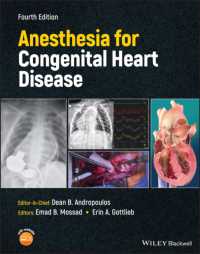- ホーム
- > 洋書
- > ドイツ書
- > Humanities, Arts & Music
- > Linguistics
- > general surveys & lexicons
Full Description
This edited book fills a void in the existing research concerning anti-communist movements in Central and Eastern Europe, outlining the linguistic implications of the cultural, social and political metamorphoses brought about by the (change of) regime.








